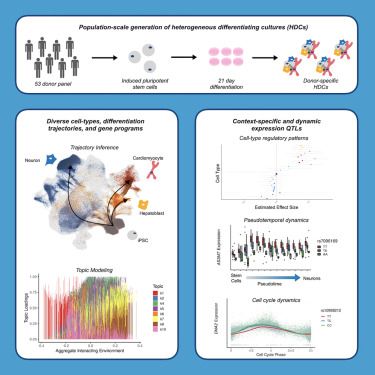Josh Weinstock
@joshweinstock.bsky.social
200 followers
280 following
10 posts
Assistant Professor in the Department of Human Genetics at Emory University working at the nexus of human genetics, computation, and statistics
weinstocklab.org
Posts
Media
Videos
Starter Packs
Reposted by Josh Weinstock
Reposted by Josh Weinstock
Reposted by Josh Weinstock
Josh Weinstock
@joshweinstock.bsky.social
· Jul 22
Josh Weinstock
@joshweinstock.bsky.social
· Jul 22
Josh Weinstock
@joshweinstock.bsky.social
· Jul 22
Josh Weinstock
@joshweinstock.bsky.social
· Jul 22
Josh Weinstock
@joshweinstock.bsky.social
· Jul 22
Josh Weinstock
@joshweinstock.bsky.social
· Jul 22

Polygenic prediction of phenotypes with a neural empirical Bayes approach
Polygenic risk scores (PRS) estimate the expected value of a phenotype based on individual genotypes. Although statistical approaches for calculating PRS have advanced considerably in recent years, fe...
www.medrxiv.org
Reposted by Josh Weinstock
Bohan Ni
@bohanni.bsky.social
· Mar 26
Integration of transcriptomics and long-read genomics prioritizes structural variants in rare disease
An international, peer-reviewed genome sciences journal featuring outstanding original research that offers novel insights into the biology of all organisms
genome.cshlp.org
Reposted by Josh Weinstock
Reposted by Josh Weinstock
Reposted by Josh Weinstock
Josh Popp
@jmpopp.bsky.social
· Dec 4

Cell type and dynamic state govern genetic regulation of gene expression in heterogeneous differentiating cultures
Popp et al. generate dozens of cell types from 53 human iPSC lines in order to characterize
the dynamic genetic regulation of gene expression across early stages of cellular
differentiation. Accessing...
www.cell.com
Josh Weinstock
@joshweinstock.bsky.social
· Nov 22
Josh Weinstock
@joshweinstock.bsky.social
· Nov 20

